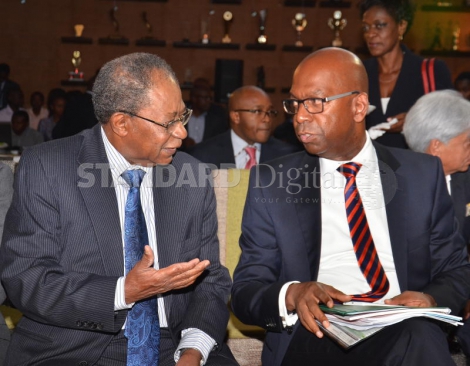×
The Standard e-Paper
Join Thousands Daily

Kenya’s largest telecommunications company, Safaricom, Thursday reported a 38 per cent growth in profit to Sh32 billion, as M-Pesa and data revenue growth helped reinforce the firm’s reputation as the most profitable in the region.
The results mean Safaricom made Sh87.7 million per day in the year that ended March 31, 2015, which translates to Sh3.6million every hour in profits alone.